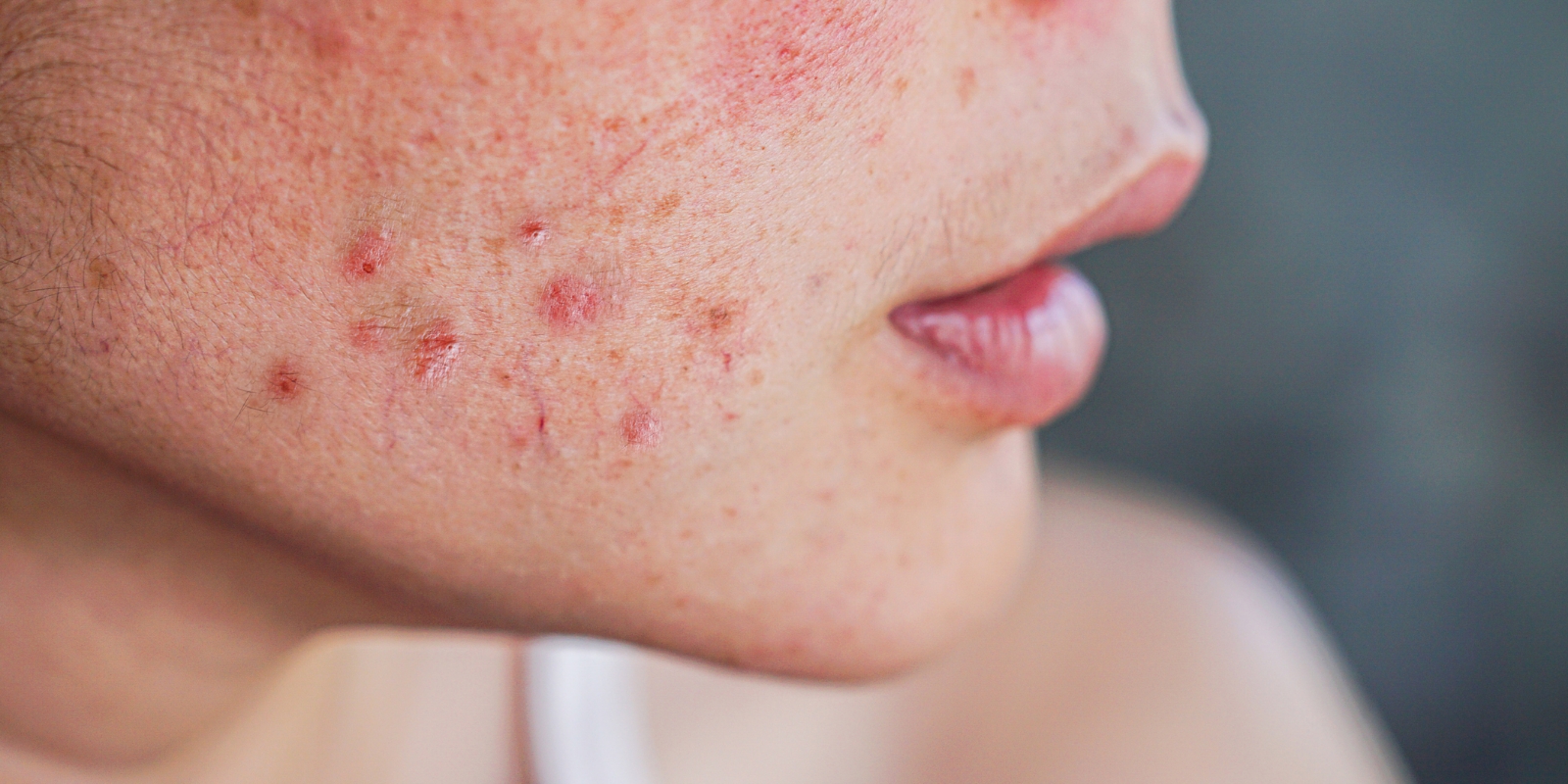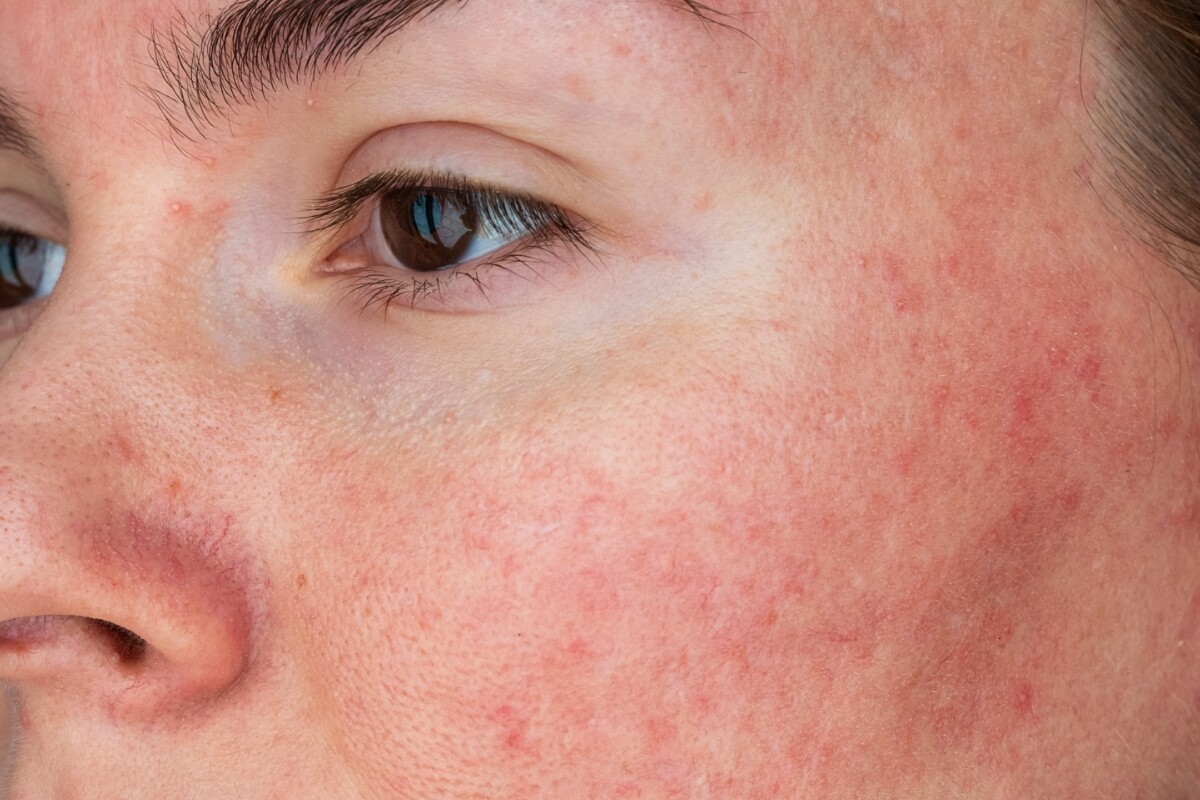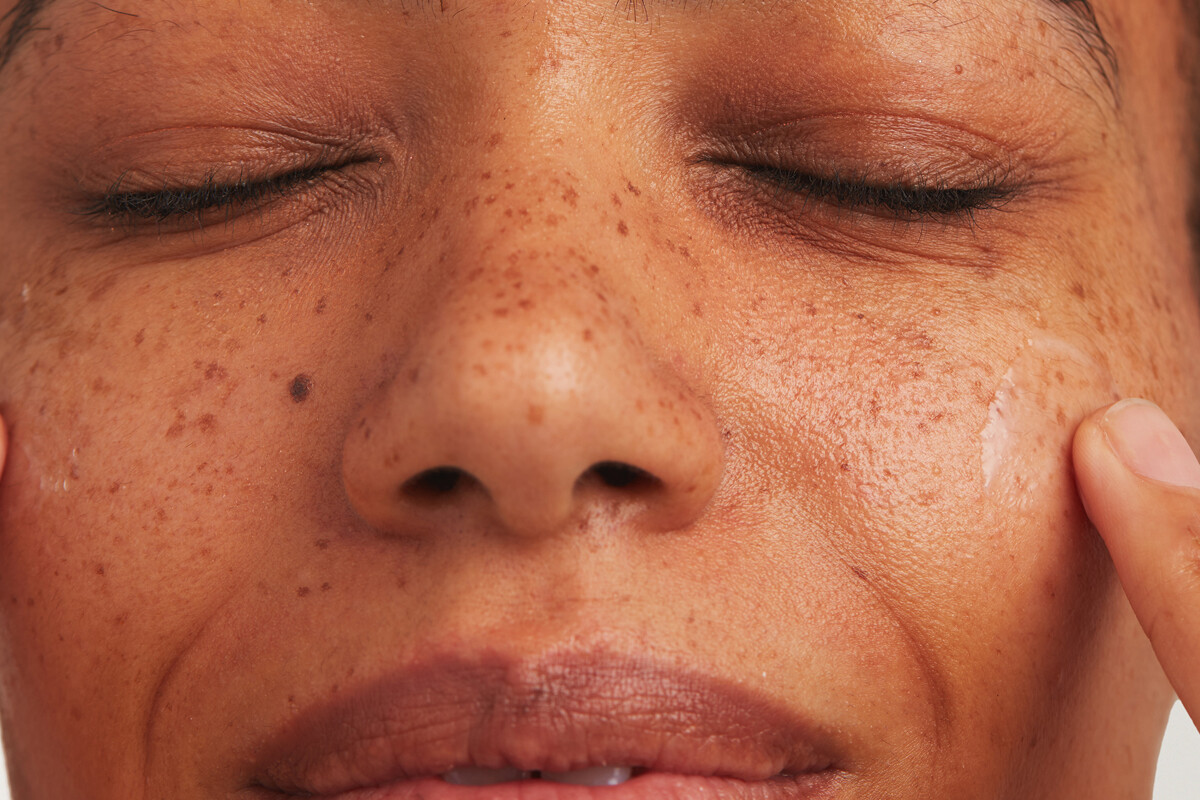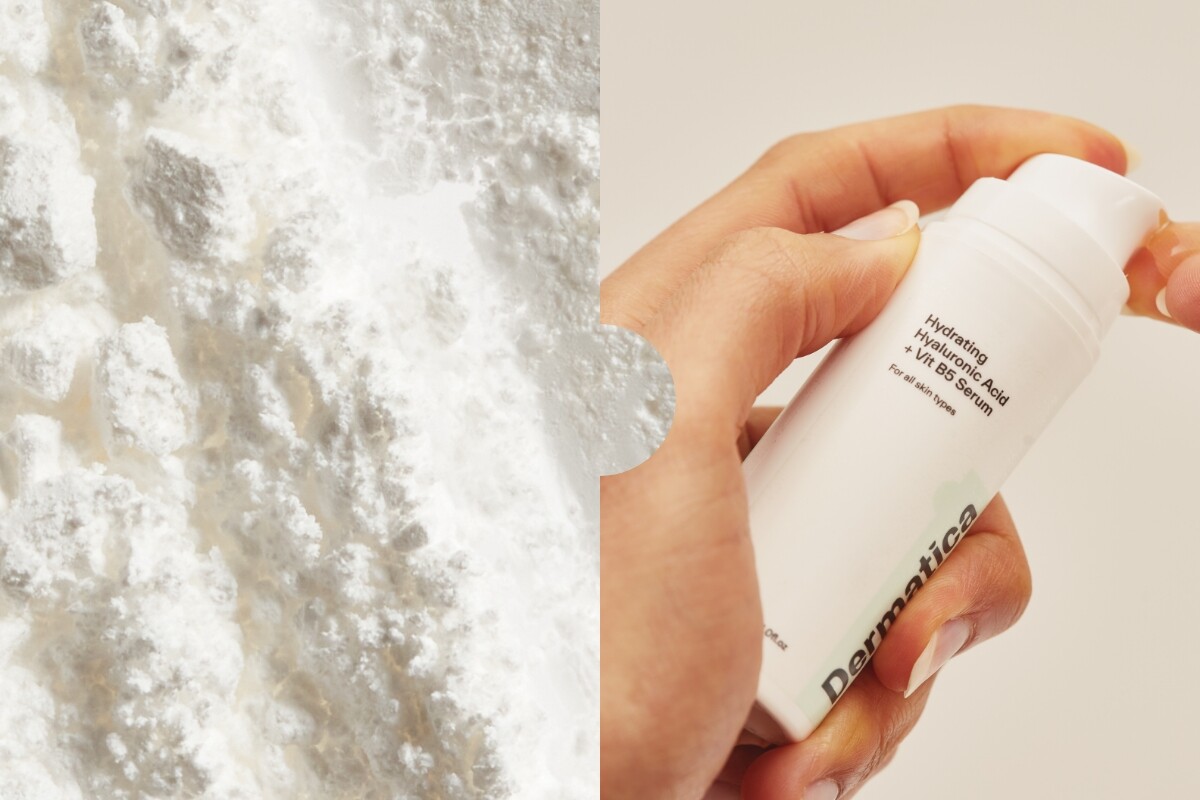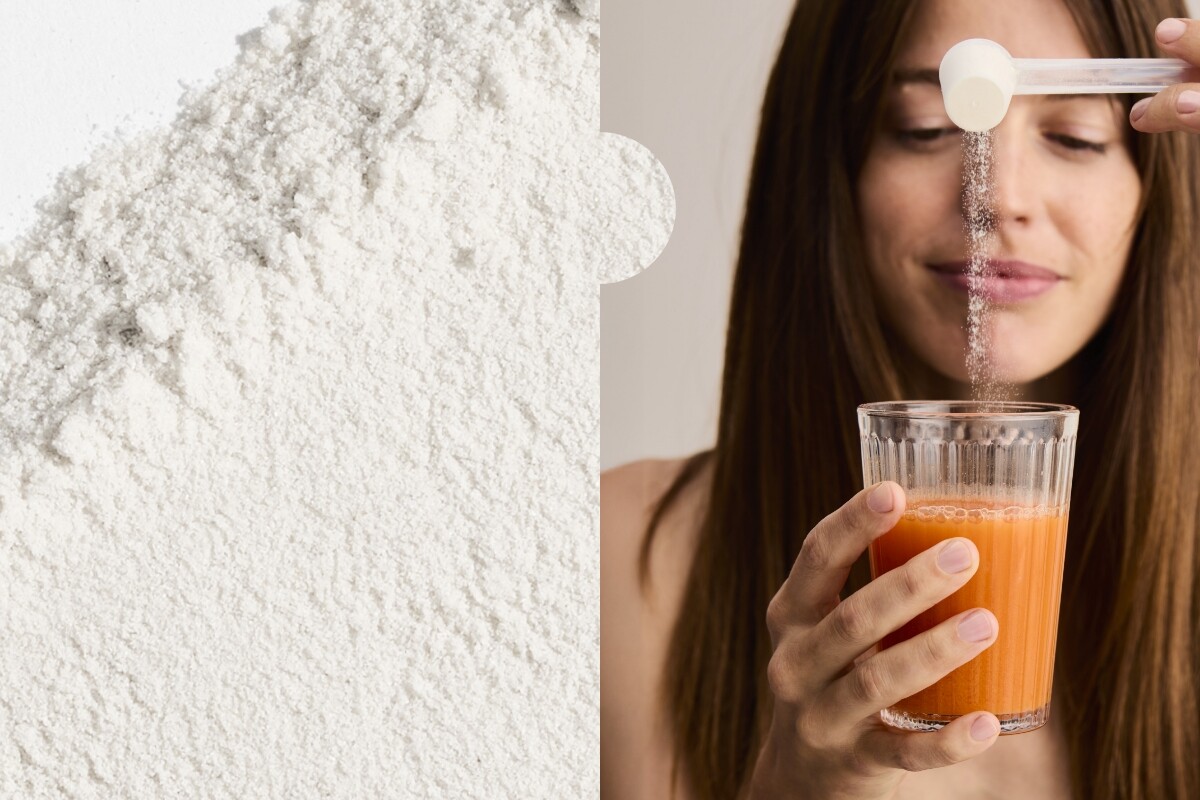Cheek acne is a common and often upsetting inflammatory condition that can be endlessly frustrating. We’re here to help you find effective treatments and ways to manage it.
Although clearing whiteheads on cheeks or more severe breakouts won’t happen overnight, understanding the main causes and knowing which treatment options work, are the best ways to treat this condition safely and maintain clear skin long term.
To learn how to recognise the type of cheek acne you have, find effective science-backed ways to treat it, and discover the changes you can make to maximise your results, keep reading.
What Causes Cheek Acne?
Acne isn’t caused by poor hygiene, but rather by the presence of acne-causing bacteria and how your skin reacts to it. This bacteria is named Cutibacterium acnes (C. acnes, formerly known as Propionibacterium acnes or P. acnes).
Blocked pores result in the development of comedones (whiteheads and blackheads). When acne-causing bacteria interact with these blocked pores, your skin will trigger an inflammatory response to fight off the bacteria, leading to acne lesions commonly known as pimples, whiteheads, papules or pustules.
You can get acne on any part of the face, but if you notice blackheads, whiteheads or inflamed acne spots on your cheeks specifically, these could be some of the most common factors. (1)
Spreading Bacteria
C. acnes can spread by regularly touching your face. Not cleaning your mobile phone, makeup brushes, face clothes or changing pillow cases frequently enough can also transfer bacteria, as well as dead skin cells and oil to your cheeks, clogging pores and therefore causing breakouts. (2)
Diet
Though evidence is mixed, it’s thought that diet might trigger cheek breakouts. Some people may be more sensitive to sugar, high-glycemic foods and dairy products, which can cause inflammation in the body and cause acne. It’s thought these foods can increase insulin levels, which may boost oil production in the skin. However, whether or not this causes breakouts will depend on your individual skin.
Stress
Stress triggers the release of stress hormones like cortisol, which can increase sebum production and lead to acne. (3)
Genetics
If someone in your family has oily skin, large pores and/or a history of acne, you’re a lot more likely to develop acne, too. (4)
Skincare products
Using rich, heavy or comedogenic (pore-clogging) skincare and makeup products can contribute to the development of acne on the cheeks. Ingredients such as lipids, essential oils, fragrances and mineral oil can often, but not always, cause cheek acne. Again, your tolerance to these ingredients will depend on your individual skin however it’s best to avoid them to be safe. (5)
Types of Cheek Acne
To treat acne, it’s important to recognise which type of acne you have. Effective treatment will also help you avoid post-inflammatory hyperpigmentation and scarring, both of which are difficult to treat.
Cheek Whiteheads
These are small, white bumps caused by clogged pores. They are called closed comedones, and form when dead skin cells, oil, and bacteria become trapped in a hair follicle.
Cheek Blackheads
Blackheads are similar to whiteheads but aren’t closed. They’re open at the surface of your skin, which causes oxidation and thus a dark appearance.
Cheek Papules and Pustules
When acne-causing bacteria becomes trapped in a hair follicle, it can trigger an immune response that leads to inflammation as your body tries to fight off the infection. Papules and pustules then form, which can be tender and may contain pus.
Cheek Nodules and Cysts
Severe forms of acne that are deeper, larger, and can be painful. (6)
Effective Treatments for Cheek Acne
If you have cheek acne, there are many treatment options that can help clear your breakouts. This includes good skincare practices, lifestyle changes, and, if serious or stubborn, professional intervention.
Simplify Your Skincare Routine
– Cleanser: Use a gentle, non-drying cleanser twice a day, morning and evening, to remove makeup, excess sebum, dirt and impurities. We often recommend Balancing Glycerin Gel Cleanser for people experiencing acne, because it’s fragrance-free, hydrating and protects the skin barrier while also being compatible with active ingredients.
– Moisturiser: Just because your skin is overproducing sebum doesn’t mean you should stop moisturising. In fact, the opposite is true. A gentle, lightweight and hydrating moisturiser will help balance your skin’s biome, and protect your natural skin barrier. Choose one that is designed for sensitive skin, with soothing ingredients, ceramides and peptides like Soothing Centella Gel Moisturiser.
– Topical Treatments: Products containing benzoyl peroxide, salicylic acid, or retinol can effectively target acne. These over-the-counter treatments should not be used alongside prescription skincare, as it may overload your skin barrier and cause irritation – worsening your condition, or damaging your skin barrier.
Prescription Treatments
Topical Prescriptions
Dermatologists may prescribe stronger topical treatments, such as antibiotics or retinoids. These may include:
– Adapalene: A first-line retinoid treatment for acne, adapalene boosts skin cell turnover, helping to unclog pores and calm inflammation caused by breakouts.
– Tretinoin: With decades of research behind its benefits, tretinoin is considered a gold standard active ingredient and an effective treatment for acne, post-inflammatory hyperpigmentation and visible signs of photoageing.
– Clindamycin: This topical antibiotic helps to kill acne-causing bacteria, reducing active acne and preventing new breakouts from forming.
Oral Medications
In more severe cases, oral antibiotics might be recommended. When used alongside topical treatments, their powerful antimicrobial and anti-inflammatory effects can reduce new breakouts, side effects like “purging”, and acne breakouts on your body – helping to get your active acne under control quickly.
Oral antibiotics are prescription medications that should be used temporarily, after being recommended by licensed medical or dermatology professionals who have analysed your skin.
Potential Lifestyle Changes
– Diet: You can try reducing the amount of sugary, high-glycemic foods and dairy in your diet to see if this improves your symptoms.
– Hygiene: Wash pillowcases and makeup brushes regularly, and avoid touching your face except when you’re cleansing or applying your skincare.
– Stress Management: Practices like yoga, meditation and regular exercise can help reduce stress levels. Sleeping more may also help.
Preventing Cheek Acne, Long Term
Knowing the causes of acne, effective treatments, and ways to prevent it can help you achieve clearer, healthier skin.
– Consistent Skincare: Maintain a simple skincare routine with targeted active ingredients, and products that are tailored to your skin type.
– Healthy Diet: Focus on a balanced diet rich in vegetables, fruits, and lean proteins.
– Hydration: Drink plenty of water to keep your skin hydrated and boost your skin barrier function.
– Sun Protection: Use a broad-spectrum, non-comedogenic sunscreen like SPF50 Photodamage Defence Sunscreen to protect your skin from UVA/UVB rays without clogging pores.
If your acne won’t go away, or worsens, you may need a dermatology professional to assess your skin and provide you with a personalised treatment plan.
To find out if a personalised skincare formula is right for you, visit the Dermatica website.
References
1. Mayslich C, Grange PA, Dupin N. Cutibacterium acnes as an Opportunistic Pathogen: An Update of Its Virulence-Associated Factors. Microorganisms [Internet]. 2021 Feb 2;9(2):303. Available from: https://www.mdpi.com/2076-2607/9/2/303/pdf
2. Suh D, Oh H, Lee SJ, Kim HJ, Ryu HJ. Relationship between acne and the use of cosmetics: Results of a questionnaire study in 539 Korean individuals. Journal of Cosmetic Dermatology. 2020 Nov 30;20(7):2172–8.
3. Zari S, Alrahmani D. The association between stress and acne among female medical students in Jeddah, Saudi Arabia. Clinical, Cosmetic and Investigational Dermatology. 2017 Dec;Volume 10(1):503–6.
4. Zhang H, Zhang Z. Genetic Variants Associated with Acne Vulgaris. International Journal of General Medicine. 2023 Aug 1;Volume 16:3843–56.
5. Waranuch N, Wisutthathum S, Tuanthai S, Kittikun P, Grandmottet F, Tay F, et al. Safety assessment on comedogenicity of dermatological products containing d-alpha tocopheryl acetate in Asian subjects: A double-blind randomized controlled trial. Contemporary Clinical Trials Communications [Internet]. 2021 Aug 19;23:100834. Available from: https://www.ncbi.nlm.nih.gov/pmc/articles/PMC8387765/
6. Kraft J, Freiman A. Management of acne. Canadian Medical Association Journal [Internet]. 2011 Feb 28;183(7):E430–5. Available from: https://www.ncbi.nlm.nih.gov/pmc/articles/PMC3080563/
Cat Hyatt
Dr Cat Hyatt is a GP, working as Clinical Content Lead for Dermatica. She has a special interest in medical content and making healthcare information accessible and understandable for all.

